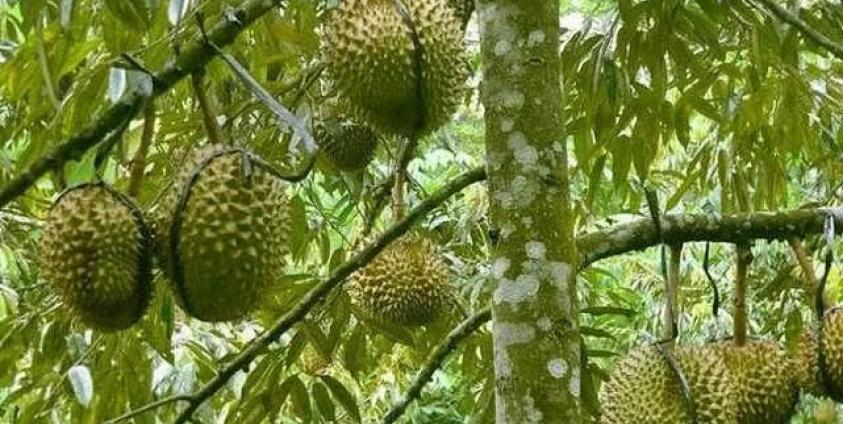The Demand for Malaysian Musang King durians soars in China. It signals the imminent arrival of opportunities and potential challenges to durian farmers.
Last November, 165,000 Chinese citizens arrived at a festival in Nanning to get their hands on a premium Musang King durians. These people were not waiting excitedly for the new iPhone or the latest gadget. They were hoping to try the Malaysian Musang King durian.
The thorny fruit has soared in popularity across China. Imports of durians into China reached US$1.1 billion in 2016. China’s durian imports have tripled in the last ten years and are currently climbing at an average rate of 26% a year.
Heightened Chinese Musang King durian demand drove Musang King durian prices up
A poor harvest and increasing demand from China drove prices for Malaysian Musang King durian up across the region. In Singapore, vendors were selling the fruit for as much as S$40 (US$30) a kilogram earlier in 2017.
Mr Teo of Durian 36 in Singapore said, “prices have been slowly going up for all Musang King durian vendors in Singapore over the last two to three years.” There is no sign of demand letting up.
More Chinese investors are investing in Malaysian Musang King durian farms
Many Chinese investors are attempting to cash in on the increased demand. Chinese investors have bought up 121 ha of durian orchards across Malaysia.
Demand for Malaysian durians soars in China. It signals the imminent arrival of opportunities and potential challenges to durian farmers.
Current levels of Chinese Musang King investment are marginal. They account for just 0.2% of the Malaysian total. But this will increase soon.
Malaysian Musang King durian farmers are currently locked out of the Chinese market
At the moment, Malaysia’s 45,000 Musang King durian farmers are unable to export fresh Musang King durians to China. Malaysian farmers wait for the fruit to ripen and drop to the ground before they collect them. The risk of contamination is high as the fruit sits on the ground before collection. Consequently, the Chinese authorities do not allow whole, fresh Malaysian durians into the country. The Malaysian farmers have to export the frozen pulp instead.
But Malaysian Minister for Agriculture, Datuk Seri Ahmad Shabery Cheek is seeking to change this. He wants fresh Malaysian durians to penetrate the Chinese market. He is working with farmers to organise the construction of nets to collect the fruits before they reach the ground.
Ahmad Shabery is also working with farmers to improve the technology in the production of Musang King durians. He wants to ensure Malaysia is producing the highest quality durians with certification marks to meet international market requirements.
Once Malaysia meets the international standards, more Chinese will invest
Ahmad Shabery hopes to make the changes and unlock the Chinese market to Malaysian farmers by the end of 2017. This will be both a blessing and a curse to local farmers.
Now, a durian orchard can yield annual returns as much as RM100,000 (US$25,000) per hectare. Once Malaysian farmers get access to the Chinese market, this figure will skyrocket. Fresh, whole Malaysian durian could fetch prices up to RM200-RM300 (US$49-US$74) a kilogram in China. This figure is far higher than the US$30 per kilogram the fruit fetched in Singapore. Singapore is the current largest importer of Malaysian tropical fruits.
The industry is becoming more lucrative. More Chinese investors will buy up Malaysian Musang King durian orchards. Local farmers are already becoming nervous. They fear they will not be able to compete with cash-rich Chinese orchard owners.
Local Malaysians concerned that surging prices for Musang King durian will price out local consumers. The durian is in danger of becoming a luxury enjoyed only by wealthy Chinese customers.
The small, pungent fruit will bring unparalleled prosperity to Malaysian farmers. As always, prosperity is a double-edged sword that brings opportunities and challenges. The rise in popularity of Malaysia’s humble durian signals the arrival of both

